
3 minute read
Victoria
NHW VIC
VICTORIA
Junior NHW Program
Leading Senior Constable Joe Clarke delivering the Junior NHW lesson
The Junior Neighbourhood Watch (NHW) program has been running since 2015. It started at one school as a pilot program to address the issues of apathy in the community regarding home security, road and personal safety. The program aims to get the message out to the community via the students who take new habits home and educate their parents and other adults to change behaviours.
The program was developed by Leading Senior Constable Joe Clarke, in conjunction with NHW Mildura Coordinator Helen Worcester.
There are more than a dozen schools and regions scattered throughout the Western Region and the program teaches students from Grades 5 and 6. Over 600 students completed the program last year.
security, road safety, cyber and other bullying plus how to become an effective witness and get better information to police. Junior NHW class hats
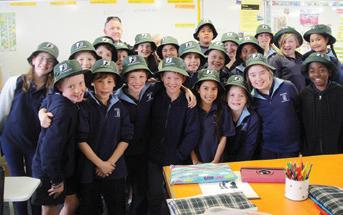
The presenters take guidance from the school about any current issues within the school and try to put out spot fires before they become bushfires. If there is a particular issue happening at the school, for example bullying, then we’ll change the presentation for the day to be about bullying. That way the issue is addressed immediately, instead of waiting for that session on the calendar, which may be another month or more away. Property marking to prevent theft
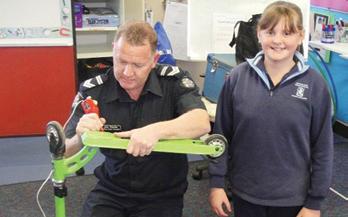
The students are given a Junior NHW folder where they keep a record of topics covered, all class handouts plus the activity sheets that they’ve completed. In the introductory class Leading Senior Constable Joe Clarke stresses the importance of taking the folder home and talking about it so that they’re taking a leadership role within the home. Adults may be
Class receives the Junior NHW folders
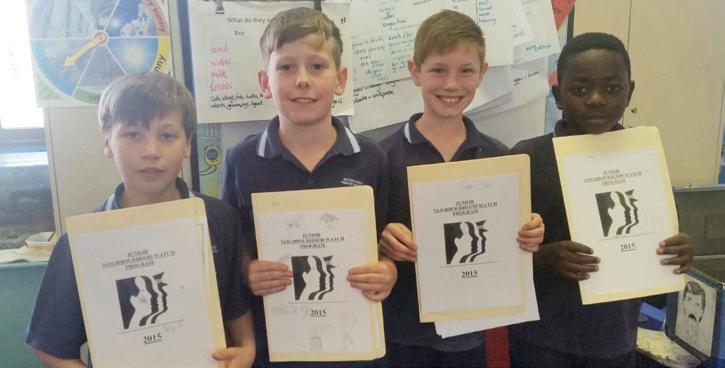
Learning about bike safety
doing the wrong thing without even knowing it; their habits are already formed and may be difficult to break.
Students can create new, good behaviours in the home to save their family from becoming victims of crime. The students are also taught about what to do if their family does become a victim of crime – ring 000, preserve the evidence, remain calm, minimise the risk.
There’s been so much interest in the program that they’ve had to train other police members and volunteers as a partnership to deliver the program; so far they’ve created eleven lesson plans to be used as a guide. The program is delivered face to face, so that the material is not delivered the wrong way. Leading Senior Constable Joe Clarke said,
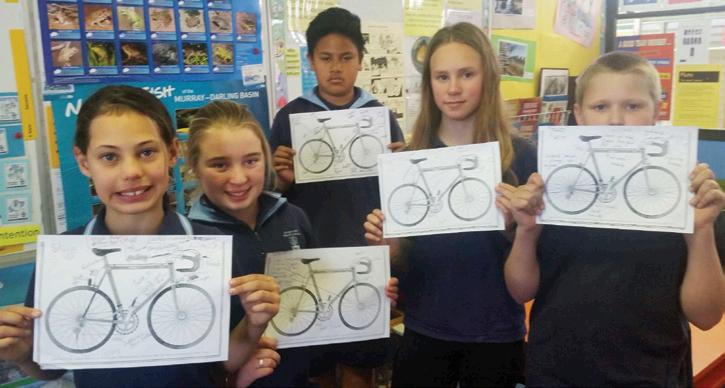
“We’re more than happy to share all the information however it has to be delivered in a certain way and presenters can’t be inexperienced with the subject”.
Helen Worcester Neighbourhood Watch Mildura Coordinator said “We’re a lucky area because Joe is an exceptional community minded police officer who is wonderful with the children. He has an empathy with them and rapport; it’s not just a job for him. He has a heartfelt connection with the Junior NHW program and the children; his door is always open if they need to speak to him outside the classroom”.
The Junior NHW program is funded using only Victoria Police and Neighbourhood Watch resources, however, not much more is needed other than printing and the personal Junior NHW members deliver personalised letters to local residents
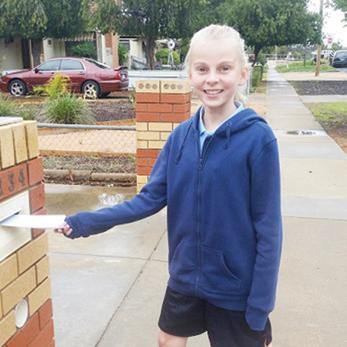
Junior NHW Annual Awards winner with NHW Mildura Coordinator Helen Worcester and Senior Constable Joe Clarke
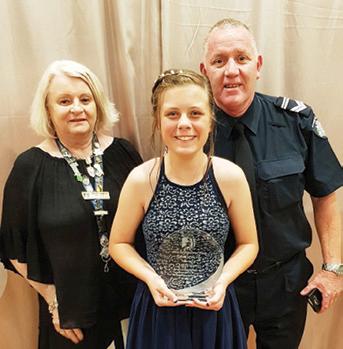
time of the person delivering the program. A crime prevention video was donated and is incorporated into the training so an idea was floated by the students – take the learning and topics suggested by the police to create a 30 second video that delivers a community message. The students plan, design and capture the message on their electronic devices which police view and then give honest feedback. After the students tinker with the plan and reshoot they submit their videos to be judged by the Western Region Superintendent who picks out a winner from each of 3 categories. The local council funds the winning videos to be professionally produced; free-to-air TV and cinemas sponsor the airtime. Joe said, “It’s a fancy reward for the kids to see themselves on screen”.









